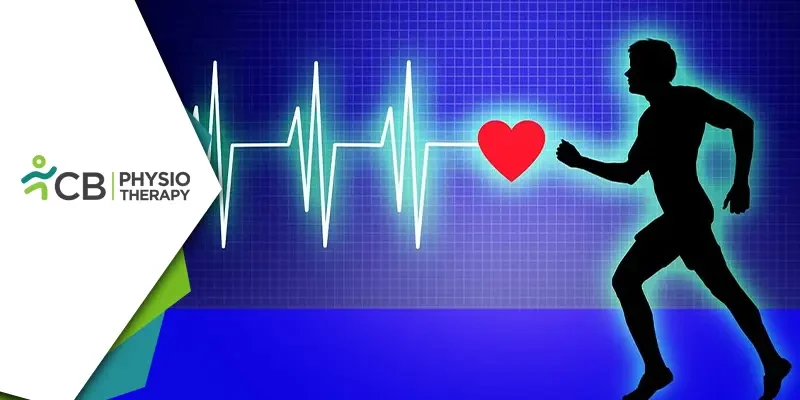Maintaining a healthy heart is crucial for overall well-being, and cardiovascular exercises play a vital role in achieving this goal. Physiotherapy cardiac exercises, specifically designed to address heart-related conditions, offer numerous benefits that go beyond just strengthening the heart. In this blog, we will explore the various advantages of incorporating physiotherapy cardiac exercises into your routine and how they can improve your overall quality of life.
Enhancing Cardiovascular Health
Physiotherapy cardiac exercises focus on increasing cardiovascular endurance, which is essential for optimal heart health. Regular physical activity, under the guidance of a qualified physiotherapist, can improve heart and lung function, increase blood circulation, and reduce the risk of heart disease. Engaging in exercises such as walking, swimming, or cycling can improve the heart's ability to pump blood efficiently, thus reducing the strain on the heart and decreasing the risk of heart-related complications.
Managing Blood Pressure
High blood pressure is a significant risk factor for heart disease. Physiotherapy cardiac exercises can effectively manage blood pressure levels by strengthening the heart and improving blood flow. Aerobic exercises and resistance training have been shown to lower blood pressure and promote a healthier cardiovascular system. By regularly engaging in physiotherapy cardiac exercises, individuals can significantly reduce their dependence on medication and enjoy the benefits of natural blood pressure regulation.
Boosting Energy Levels
One of the often-overlooked benefits of physiotherapy cardiac exercises is the boost in energy levels they provide. When you have a healthy heart, oxygen-rich blood flows efficiently throughout your body, providing energy to your muscles and vital organs. Regular physical activity enhances your body's ability to deliver oxygen and nutrients, leading to increased stamina, improved endurance, and a general sense of vitality. Physiotherapy cardiac exercises can help combat fatigue and make daily activities feel less strenuous.
Weight Management
Maintaining a healthy weight is crucial for heart health. Physiotherapy cardiac exercises are an excellent tool for weight management and can aid in weight loss efforts. These exercises help burn calories, increase metabolism, and build lean muscle mass, which in turn helps individuals achieve and maintain a healthy weight. By shedding excess pounds and reducing body fat, the strain on the heart is alleviated, reducing the risk of cardiovascular complications.
Reducing Stress and Anxiety
The benefits of physiotherapy cardiac exercises extend beyond physical health and promote mental well-being. Regular exercise releases endorphins, known as the "feel-good" hormones, which elevate mood and reduce stress and anxiety levels. Physical activity stimulates the production of serotonin and dopamine, neurotransmitters that regulate mood and promote a sense of calm and relaxation. By incorporating physiotherapy cardiac exercises into your routine, you can experience a natural and effective way to combat stress and improve mental well-being.
Enhancing Quality of Life
Physiotherapy cardiac exercises contribute to an overall improvement in the quality of life. By improving cardiovascular health, managing blood pressure, boosting energy levels, and reducing stress, individuals can enjoy a more active and fulfilling lifestyle. Engaging in physical activity promotes independence, enhances mobility, and increases longevity. Regular exercise can also improve sleep patterns, enhance cognitive function, and strengthen the immune system, leading to a healthier, more resilient body.
Physiotherapy cardiac exercises offer a multitude of benefits that go beyond just strengthening the heart. By incorporating these exercises into your routine under the guidance of a qualified physiotherapist, you can enhance cardiovascular health, manage blood pressure, boost energy levels, manage weight, reduce stress and anxiety, and enhance your overall quality of life.

